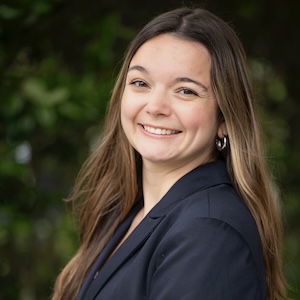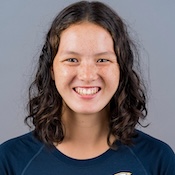Write your personal profile
The personal profile is a crucial section in your UBC application. This is your chance to tell us about the things that are important to you, your significant achievements, what you’ve learned from your experiences, and the challenges you’ve overcome. It’s our chance to determine whether you’re a good fit for UBC and if you’ll receive an entrance scholarship.
More on How to apply:
On this page:
Watch: Your personal profile for your UBC application
Get tips for crafting a strong personal profile that will help UBC understand what’s important to you, what you’ve achieved, and what you’ve learned from your life experiences so far.
Who must write a personal profile
You must complete a personal profile as part of your online application if:
- You’re a high school student applying to any degree on UBC’s Okanagan or Vancouver campuses (except for the Bachelor of Design in Architecture, Landscape Architecture, and Urbanism, Dental Hygiene, and Music).
- You’re a university or college transfer student applying to the Bachelor of Nursing on the Okanagan campus, or the Bachelor of Commerce or the Bachelor of International Economics on the Vancouver campus.
Preparing for the personal profile
Each of the personal profile questions requires short essay responses (500 – 2100 characters, approximately 50 – 500 words), so you’ll want to think about your answers before you start your online application. Here are three tips to keep in mind:
- Take time to reflect. Instead of simply listing your accomplishments and experiences, tell us what you’ve learned from them.
- Be specific. Use details to provide context and elaborate on your answers.
- Be true to who you are. Don’t focus on what you think we want to hear. Use your unique voice to tell us what you want to say.
Note that within the application system, each personal profile question has a character limit (which is not the same as word count). Pay attention to each question’s character limit because your answer will get cut off if you go over the maximum.
Personal profile questions
Depending on which degree(s) you apply to, you’ll be asked to answer some or all of the following questions in your personal profile:
- Tell us about who you are. How would your family, friends, and/or members of your community describe you? If possible, please include something about yourself that you are most proud of and why.
- What is important to you? And why?
- Describe up to five activities that you have pursued or accomplishments achieved in one or more of the following areas. Please outline the nature of your responsibilities within these activities:
- Club
- Family/community responsibilities
- Creative or performing arts
- Work/employment
- Athletics
- Volunteer
- Service to others
- Other(s)
- Tell us more about one or two activities listed above that are most important to you. Please explain the role you played and what you learned in the process. You will be asked for a reference who can speak to your response.
- Additional information: You may wish to use the space below to provide UBC with more information on your academic history to date and/or your future academic plans. For example: How did you choose your courses in secondary school? Are there life circumstances that have affected your academic decisions to date? What have you done to prepare yourself specifically for your intended area of study at UBC?
- Please submit the names and contact information of two referees who know you well and can comment on your preparedness for study at UBC.
- Examples of referees include an employer, a community member, a coach, a teacher/instructor, or anyone who knows you well.
- One of the referees you select must be able to speak to one of the activities/experiences described in one of your long-answer responses above.
- For applicants who are currently attending a high school, one of your referees must be a school official (e.g., Grade 12 or senior year counsellor, teacher, or IB coordinator). Neither referee should be a friend, family member, or paid agent.
- Note that UBC does not send a link to references. We will contact your references directly, after offers of admission have gone out.
For the Bachelor of Education personal profile only:
- Why do you want to become a teacher?
- Describe the kind of teacher you want to be. Give examples.
- Equity, Diversity, Inclusion and Decolonization are integral to the teaching profession. Give one or more examples from your experience with youth that demonstrates work with individuals from varied backgrounds, perspectives, identities, and needs. Explain what you learned from the experience(s), and how this will prepare you to be an equitable educator. Do not repeat information already stated above.
For the Bachelor of Commerce (UBC Vancouver) personal profile only:
- Explain how you responded to a problem and/or an unfamiliar situation. What did you do, what was the outcome, and what did you learn from the experience?
- How are you positively impacting your community? How do you plan to leverage your UBC Sauder experience to enhance these efforts?
-

“It’s important to be yourself, and to know that there’s no such thing as a ‘perfect’ personal profile; be genuine and it will go a long way.”
Emma M-R., fifth year Sociology + Master of Management student -

“Start early! Give yourself a couple of months before the deadline so you have plenty of time to brainstorm, write, and revise. I began by jotting down all my ideas and experiences without worrying too much about wording. Once everything was on paper, I could see the bigger picture and start organizing my thoughts into a strong narrative. Don’t rush the editing process either. Set aside time to proofread and make improvements gradually. It really helps to step away for a day or two and come back with fresh eyes!”
Jasmine L., fourth year Commerce student -

“My advice for writing a great personal profile lies right in its name: to write a highly personal story regardless of how silly or not flashy that story may seem. I wrote my personal profile about the friends I made by playing on Minecraft servers during lockdown from COVID. I highlighted my love for connection and discovery, which was communicated to UBC admissions through a silly but engaging example. Do not be afraid to be vulnerable here and write something that embodies your core values!”
Kodi B., fourth year Bioeconomy Sciences and Technologies student -

“Writing your personal profile can feel overwhelming, so give yourself time and grace...My tip for starting is to begin by creating bullet points of all the extracurriculars you have been involved in and experiences that have influenced you...Once you have laid this out, look for common themes across your experiences that you can use to help guide your answer to the prompts.”
Robyn G., third year Kinesiology student
How UBC evaluates your personal profile
UBC’s trained readers will read and evaluate your personal profile and compare it with the profiles written by other UBC applicants. We’re not looking for a particular experience, and there are no right or wrong answers. Your profile will be assessed against four criteria.
Engagement and accomplishment
How do you pursue your interests and manage your responsibilities? What do you do with your time when you are not in class? What would you (or others in your community) consider your most significant contributions and accomplishments? Whether it’s winning an international award or taking care of a younger sibling, any experience can teach you something about yourself and/or the world around you. We want to know what you have been doing and what have you have learned from your experiences. Make sure to give specific examples.
Leadership
Have you undertaken responsibilities and activities that have benefited those around you and/or contributed to your community in a meaningful way? If so, what have you learned about yourself and others in the process? Leadership can come in many forms. Any act of responsibility and/or initiative that serves others is a form of leadership. Leadership can be demonstrated in a formal role, within a group (e.g., being president of a club or captain of a team), or in an informal role, as an individual (e.g., taking it upon yourself to help in your community). And remember – it’s not just about being in a leadership role, it’s about what leadership has taught you.
Substance
Have you spent sufficient time reflecting upon what you want to say? Have you answered the questions in a detailed and meaningful way? Is the content of your personal profile superficial or clichéd, or are you presenting interesting, well-thought-out, and relevant ideas? Remember that trained UBC readers will be reviewing and comparing thousands of personal profiles. The best way to stand out is by making sure you have something meaningful and insightful to say.
Voice
Communication is important. Have you written a personal profile that is genuine and unique to who you are? Does your profile authentically reflect your own words? Will your voice stand out in a meaningful way, or will your profile read like many others?
Your personal profile and disruptions outside of your control
We know that disruptions can arise that may affect your access to extracurricular activities at school or in your community. We will be as flexible as possible to ensure that your personal profile is not disadvantaged by disruptions caused by things outside of your control.
Remember that when we assess your personal profile we take into account all of the activities you’ve done across multiple years, not just the ones you hoped to complete in Grade 11 or 12. Your examples can come from any aspect of your life, including within your family or smaller community. There are no right or wrong answers – we’re not looking for certain activities or a long list of achievements, but rather your reflections on what you’ve experienced.